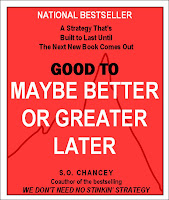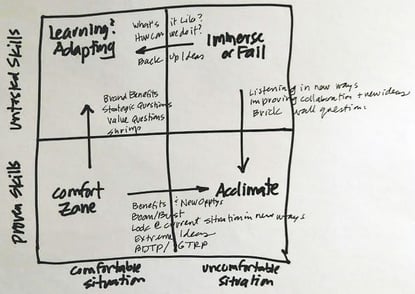 You ask, “What’s a Morphfiend?”
You ask, “What’s a Morphfiend?”
You’ve come across them at work; maybe in your personal life as well. A morphfiend is someone who continuously changes strategies for the pure pleasure of changing strategy. While they may use this trait to appear adaptable, it’s clear that they’re so willing to change strategies because they have no real strategic underpinning from which to make decisions.
Suspect you may be working with a morphfiend? See how many of these questions you can answer “YES” to for the suspect. Are they always:
- Quoting from the latest fad management book…until the next fad management book comes along from which to quote?
- Claiming sole responsibility for strategy - as in, “I don’t need anyone else focusing on strategy; I just need them to execute”?
- Making absolute pronouncements about what they WILL or WON’T do. Except they usually soon STOP what they were DOING, and DO the things that they’d NEVER DO.
- In continual “hurry up, then slow down” mode, issuing poorly though-out directives that are rescinded when it's quickly clear that they won't work?
- Expecting subordinates to be order takers on their strategic directives, while in turn being an order taker for their own boss’ directives?
If you could answer YES to three or more characteristics, you have enough evidence to convict – you're working with a morphfiend.
The punishment, unfortunately, is done by you and others around the morphfiend.
What can you do for the good of the business to combat the negative implications of a morphfiend? Here’s a possible approach:
- Build an informal affiliation with others who share concerns about your strategic direction's stability.
- Hypothesize on what the business’ most successful strategic foundation likely is/should be.
- Stay a step ahead - read the newest fad management book, identifying how you can tie the book’s principles to the strategic hypotheses you’ve formulated.
- Engage the morphfiend with as many people as possible sharing a consistent strategic message couched in fad management speak. Do this to try to own the morphfiend’s strategic perspective through sheer volume of consistent messaging that sounds like it fits with their own strategic view.
Will it work? Sometimes – I’ve seen it both work and fail depending on the circumstances. But short of resigning yourself to faux strategy that continues to ping pong, it’s likely your best shot.




